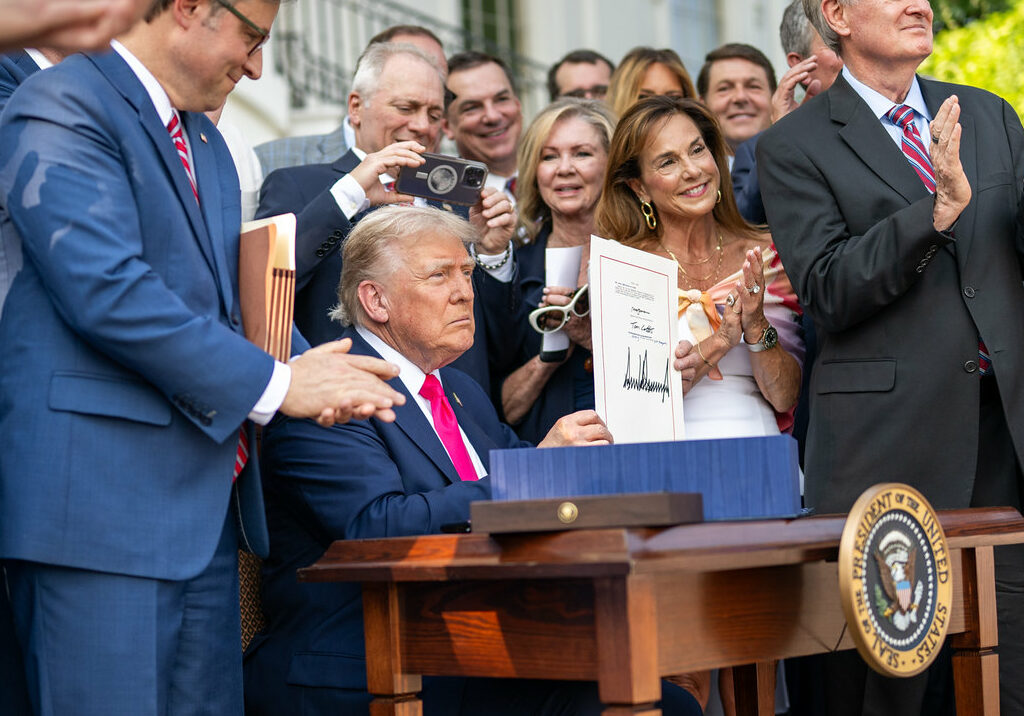The moment Washington passed the One Big Beautiful Bill Act, headlines blared that Congress had “slashed” Medicaid and food stamps and was, once again, “throwing grandma over the cliff.” That script is as tiring as it is dishonest.
Yes, there is plenty to criticize in the new law. Chief among the concerns is the trillions in additional red ink. However, the supposed healthcare and nutrition “cuts” are not the villains the professional outrage machine claims they are. If we want a serious conversation about fiscal sanity, we must first insist on serious facts.
Start with the reality of what these programs look like today. Medicaid, originally designed as a narrow safety net for the poor and disabled, now enrolls 24 percent of the U.S. population, twice the number officially living in poverty. The Supplemental Nutrition Assistance Program, also known as food stamps, covers 13 percent of Americans. Together, these programs cost federal taxpayers more than $650 billion annually for Medicaid and $119 billion for SNAP. That price tag climbs automatically because benefit formulas are tied to inflation and the ever-increasing cost of medical care.
These reforms are overdue. Over the years, both programs have evolved into mechanisms for politicians to buy votes, extending benefits far beyond those truly needy. States eager for what they see as “free” federal dollars discovered that by expanding eligibility to able-bodied adults (or, in some cases, even undocumented immigrants), they could shift much of the bill to Washington. The cost-sharing formulas have become so convoluted that even governors struggle to determine the marginal cost of adding a single new enrollee. The incentives are backward, perverted and broken, and this legislation offers a modest attempt to fix them.
Critics argue that the projected savings (anywhere from $300 billion to $500 billion over 10 years) are cruel or coldhearted. These savings should be seen as a down payment on fiscal reality. Last year alone, the United States borrowed $10 trillion to meet its existing obligations. We are, in practical terms, insolvent. The only reason we continue to function as a government is that global lenders still trust us enough to buy our debt. That kind of trust doesn’t last forever, and it certainly shouldn’t be the basis of long-term national strategy.
There is a more fundamental issue to consider. Healthcare and nutrition assistance should not be federal programs in the first place. These are classic examples of responsibilities best handled at the state level. By converting Medicaid and SNAP into block grants to the states, we could end the perverse dynamic in which spending more means getting more federal dollars. That shift would also allow states to experiment, innovate and respond to local needs without waiting for bureaucratic waivers from Washington. Federalism works best when states serve as laboratories of democracy. This reform would enable the best ideas to rise to the top while allowing ineffective policies to fail quickly and visibly.
While the OBBBA makes a first attempt at reforming Medicaid and SNAP, it leaves the programs that pose the most significant long-term fiscal threat — Social Security and Medicare — untouched. Budget analysts agree that the OBBBA bill will still add $3 trillion to $5 trillion in new debt once all the temporary provisions and creative accounting tricks are factored in. That means we are still pushing the burden onto future generations, sacrificing their prosperity for the political convenience of today.
In the coming weeks, even more attack ads will flood the airwaves, showing seniors on the edge of cliffs and children staring at empty lunch trays. None of this reflects what the legislation does. It merely slows the automatic growth of programs that have outlived their original mission. If we cannot stomach even this modest course correction, we will never tackle the larger structural issues driving our debt.
The United States still has time to change course, but that window is closing fast. A country that repeatedly votes for new benefits while charging them to its grandchildren is playing a dangerous game. Eventually, the bills come due.
Reforming Medicaid and SNAP is about preserving these programs for those who genuinely need them and returning responsibility to the states, where it belongs.
Washington took a timid first step. The rest of us should demand more. If we do not summon the courage to act soon, the reckoning will come anyway, only it will be imposed by creditors and lead to chaos rather than reason and reform.


